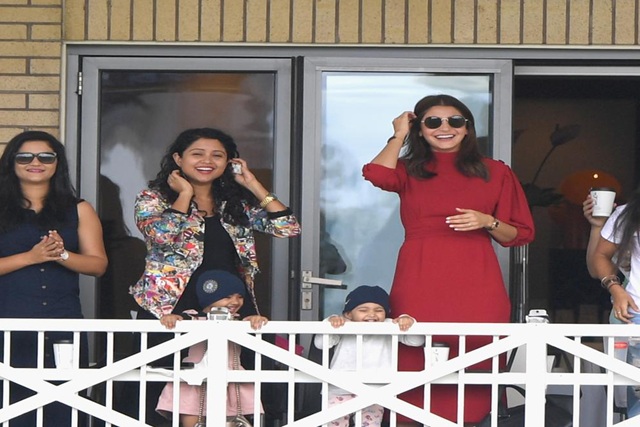Our Terms & Conditions | Our Privacy Policy
India Considers Limits on Cricketers’ Wives After Australia Loss – Sri Lanka Guardian
India’s disappointing 3-1 loss in the Border-Gavaskar Trophy during their recent tour of Australia has sparked intense scrutiny, with the Board of Control for Cricket in India (BCCI) reportedly planning to restrict the time players’ wives can spend with them on future tours. According to The Times UK, the presence of spouses has been criticized as a potential distraction that affects players’ focus and performance on the field.
While the concept of allowing wives and families to join cricketers on tour is not new—intended to ease the emotional challenges of extended travel—India’s cricket authorities are now reconsidering the practice. Reports indicate that under proposed new rules, players’ wives will only be allowed on tour for a maximum of two weeks during campaigns longer than six weeks. For shorter tours, the restriction may be reduced to seven days.
The debate gained traction as the Indian team struggled in Australia, where some players were accompanied by their spouses, including Virat Kohli with his wife, Bollywood star Anushka Sharma; Jasprit Bumrah with Sanjana Ganesan; and KL Rahul with actress Athiya Shetty. Critics argue that the presence of family members could lead to players traveling separately from the team, further affecting cohesion. As part of the rumored new measures, players will be required to travel exclusively with the team, even if their spouses are present.
Sports writer Suresh Menon dismissed the proposed restrictions as “ridiculous,” highlighting a double standard in the treatment of players’ personal lives. He noted that Virat Kohli, for example, was criticized when his form dipped while traveling with Anushka Sharma but received no credit for later performances when she was present during his successes. Menon argued that spending time with family could, in fact, help players escape the intense pressures of cricket in India, where stars are often treated as larger-than-life celebrities.
The underlying assumptions fueling such policies have also been questioned. Binoo Johan, author of Top Game, suggested that the ban may be rooted in outdated notions about how physical activity or personal relationships might affect athletic performance. Johan likened the idea to beliefs held by Mahatma Gandhi, who advocated celibacy as a path to greater strength and focus, a notion now debunked in modern sports science.
While the BCCI has yet to confirm the policy changes officially, the move has reignited discussions about balancing the personal and professional lives of elite athletes. Advocates for players argue that family support can improve mental well-being, ultimately enhancing on-field performance.
As India looks to recover from the disappointment of their Australian tour, the debate highlights the broader pressures faced by the country’s cricketers, who are tasked with meeting high expectations from fans and administrators alike. Whether the proposed restrictions will be enforced remains to be seen, but the controversy highlights the delicate interplay of tradition, modernity, and performance in Indian cricket.
Images are for reference only.Images and contents gathered automatic from google or 3rd party sources.All rights on the images and contents are with their legal original owners.



Comments are closed.